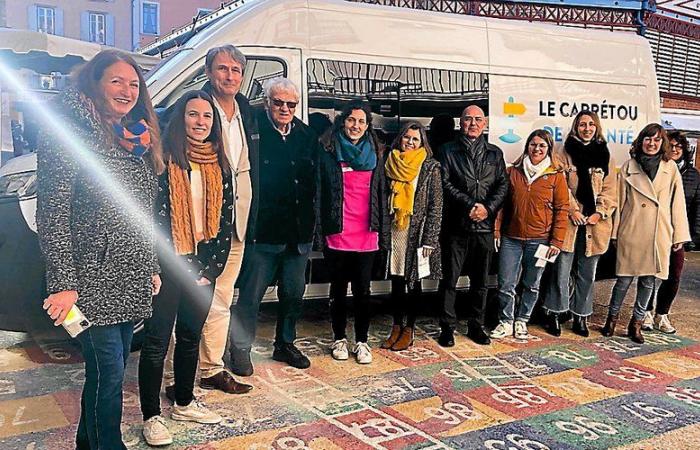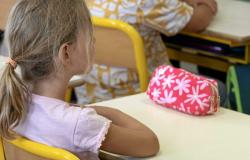
Still experimental in Aveyron, the itinerant system called the “Carrétou de la santé” aims to bring patients closer to the healthcare offer.
Promote health while taking into account the specificities of the rural world marked by a shortage of professionals and both geographical and social isolation. So much for the statement of the new system launched a month ago in the territory of the Grands Causses regional natural park: the “Carrétou de la santé”. A traveling project, it is being tested with stakeholders in health, medico-social, the social sector and local communities. From prevention to screening, the objective of this system is to provide access to care and health prevention actions as close as possible to the inhabitants of the Grands Causses Regional Natural Park.
Closer to isolated audiences
Modeled on the local health contract (CLS) which aims, among other things, to reduce social, territorial and environmental inequalities in health, this mobile “Carrétou” will be deployed in particular in the villages and hamlets least served by the healthcare offer. . By combining a “bring-towards” approach with a “go-towards” approach which consists, recalls the PNR, of “temporarily relocate services, activities and support as close as possible to isolated audiences”.
Currently experimental – a first assessment is planned for September 2026 – this system brings together around twenty partners who will be able to intervene in three priority areas linked to mental health, awareness of health issues and prevention.
Bring the actors to the heart of the village
A close network between different associative and health structures which also makes the initiative unique and a prerequisite for its effectiveness. “Knowing local stakeholders well and working well together is also the strength of the Parc and Carretou”validates Emmanuelle Gazel.
“Because it is not enough to place a vehicle in a village square for it to work, it is all the network work that will make this possible. » By design, the Carrétou will be able to count on the network made up of 93 “health referents” – elected officials, individuals, presidents of associations – recruited in the eight municipalities of the PNR in order to increasingly strengthen this network for the benefit of those forgotten in the journey of care.
Designed to irrigate medical deserts by trying to plug gaps in the provision of care in rural areas, confirms Philippe Poulet, responsible for the coordination of territorial policies of the Regional Health Agency (ARS), the device responds finally to mobility issues.
Reduce inequalities
Because transport can also be “a brake on territorial attractiveness and a strong factor of economic and social vulnerability. Mobility represents up to 1/3 of the budget for remote households”validates the PNR. Emblem of peripheral France, transport and more specifically the car, represents in the rural territory of the Grands Causses, the first source of energy consumption – 41% compared to 35% on a national scale. “The Carrétou de la Santé therefore makes it possible to resolve this problem by reaching out to those who are furthest away”concludes Lucie Bousquet, in charge of the PNR of the local health contract (CLS) whose objective is to “reduce social, environmental and geographic health inequalities. »
With or without an appointment, several prevention and health promotion actions are and will be offered in the towns and villages of the region. More information on www.parc-grands-causses.fr
Access to care and mobility
The Carrétou de la Santé is part of a reverse mobility approach (out-and-out). Concretely, the service consists of bringing those involved in prevention, screening and care as close as possible to geographically isolated residents with a traveling vehicle. The Carrétou has two roles: both that of a tool for social cohesion towards collective actions for prevention, screening and health promotion, but also that of a truck providing access to care and mobility. As such, it will offer a space for individual interviews to support mobility towards care services and health professionals.
France





